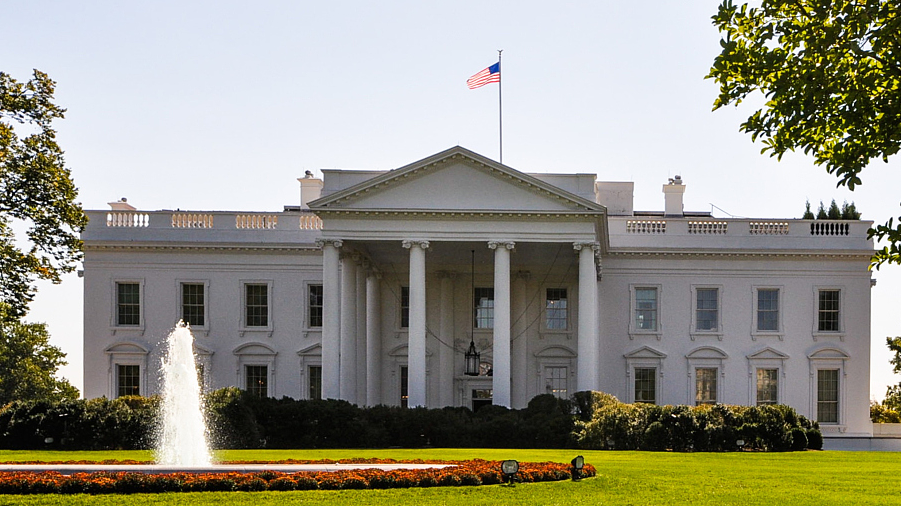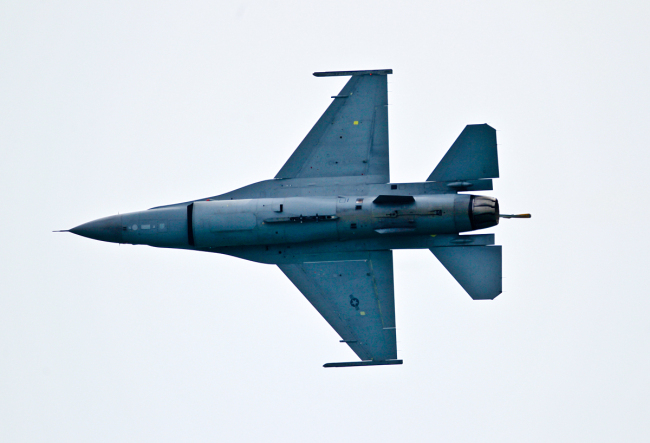

Editor's note: The article was first published by China Plus on August 22, 2019. It does not necessarily reflect the views of CGTN.
China has warned that if Washington continues with its plan to sell 66 F-16 fighters and associated equipment to Taiwan, Beijing will take all of the measures necessary to defend its core interests, including imposing sanctions on the American companies involved.
The statement from Beijing followed an announcement by the U.S. Defense Department that it had officially notified Congress of the 8 billion U.S. dollar arms package. China has called the arms deal a serious violation of international law and the basic norms governing international relations and warned that Washington will pay the price for interfering in China's internal affairs and undermining its sovereignty and security.
Arms sales to Taiwan are a sticking point in bilateral ties. According to the three China-U.S. joint communiques that are the foundation of bilateral relations, the United States recognizes the government of the People's Republic of China as the sole legal representative of China, and that Taiwan is part of China. One of the three documents, known as the August 17 Communique, signed in 1982, stipulates that Washington must gradually reduce its arms sales to Taiwan until the Taiwan issue is fundamentally resolved. But Washington, through the U.S. Taiwan Relations Act, keeps providing military support to the island region.
The Trump administration has taken the issue a step further. In its recently-passed National Defense Authorization Act for Fiscal Year 2020, Washington decided to support continued arms sales in Taiwan. After announcing a 2.22 billion U.S. dollar arms package for the island, Washington put forward its offer for the 66 F-16s – the largest single arms sale proposed between the United States and Taiwan in years. This sale poses a serious threat to China-U.S. relations and the security situation across the Taiwan Straits.

An F-16 fighter pictured at the Singapore Airshow. /VCG Photo
This arms deal is a way for the Trump administration to cater to the interests of American arms dealers and make headlines for giving foreign trade an 8 billion U.S. dollar boost. It's also a transparent attempt to press Beijing for concessions in the ongoing trade negotiations, which have seen Washington come under pressure as a result of China's countermeasures. But Beijing is not interested in having unrelated political issues dragged into the trade talks, which are complicated enough. And besides, the Taiwan issue concerns China's sovereignty and territorial integrity - it is not a chip to be bartered in trade negotiations.
The arms sale to Taiwan has nothing but downsides. It would cause deterioration in the security situation of the island and the wider region. The multi-billion-dollar deal would also be a substantial burden on the island's economy, which is expected to grow by less than 2.1 percent this year. And Washington's betrayal of the one-China principle damages its own international credibility.
China will not stand by and watch the United States make Taiwan a pawn in its efforts to contain the country's development. Taiwan's future relies on reunification with the mainland, and the nation's unity and rejuvenation. Any attempt by the United States to contain China by playing the Taiwan card will backfire.
(If you want to contribute and have specific expertise, please contact us at opinions@cgtn.com.)

Copyright © 2018 CGTN. Beijing ICP prepared NO.16065310-3
Copyright © 2018 CGTN. Beijing ICP prepared NO.16065310-3